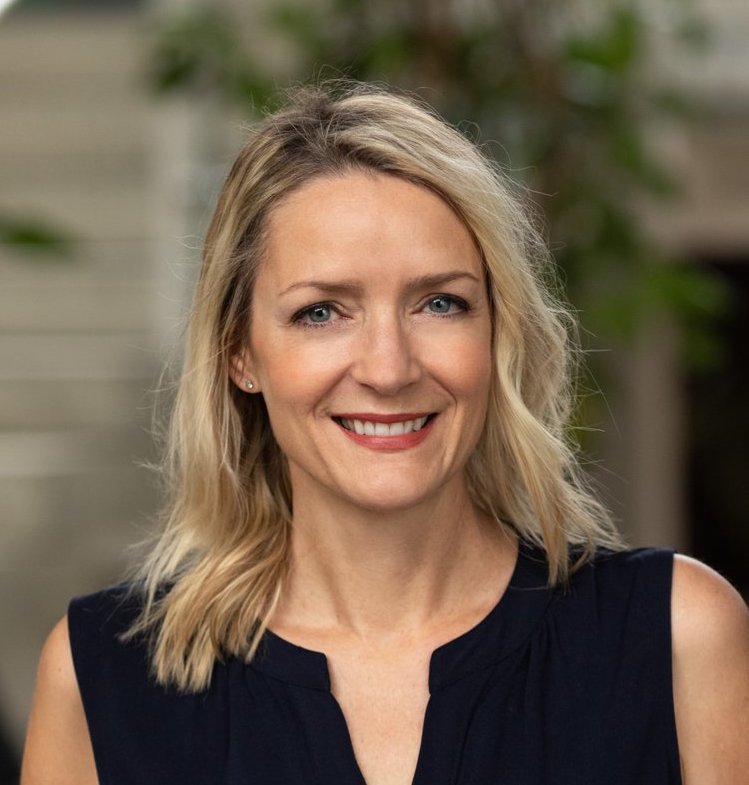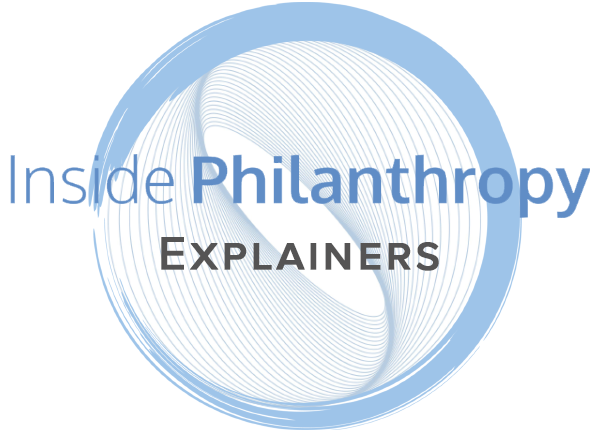A Corporate Funder Sticks With a Nonprofit That Changes Young Lives With Tech
/A guest speaker at Hopework’s office in Camden. PhotO: Hopeworks
Earlier in the year, I wrote about the Comcast-NBCUniversal Foundation and its work in closing the digital divide in the Philadelphia area and in other cities where the company has a presence. Dalila Wilson-Scott, president of the Comcast NBCUniversal Foundation, provided an inside look at some of the foundation’s programs and partner organizations.
One such partner is Hopeworks, founded in 2000. On the other side of the Delaware River in Camden, New Jersey, the organization works with youth ages 16 to 24 and offers paid training in website design and development, GIS mapping, and other technological skills that will lead to paid internships either with Hopeworks, or with externship partners. Comcast-NBCUniversal has strengthened its relationship with Hopeworks, directing grants and support to the organization.
How has Hopeworks stood out with a big corporate funder like Comcast-NBCUniversal through the years? And what can other nonprofits learn from that relationship, especially those working in the STEM and workforce development space?
A Burgeoning Relationship
“It started like a lot of the relationships we have with several employees working in mentoring and coaching Hopeworks students over time,” Wilson-Scott told me in a recent conversation. “There’s always been a connection point.”
Back in 2017, Comcast NBCUniversal Foundation partnered with Greg Behrman’s NationSwell to co-host a competition called Tech Impact AllStars. Hopeworks was one of the finalists, and Wilson-Scott got a firsthand look at the organization. “I really got to understand their model, the top staff there, and what made them different. And their executive director, Dan Rhoton, is just a great and energetic guy. Regardless of background, he sees tremendous potential in everyone,” Wilson-Scott says.
A longtime teacher and administrator at a juvenile detention center, Dan Rhoton joined Hopeworks in 2012 and has been executive director since 2015. Rhoton explained to me that in his role as a teacher and vice principal, he definitely dealt with rough kids. But he also saw that many youth wanted to do something with their lives. “There are ways to work with other people who have struggled. Indeed, that’s their superpower. And when you turn it around, they’re not as good as the typical employee. They’re actually better,” Rhoton says.
In his role at Hopeworks, Rhoton leads an organization that doesn’t just provide technology skills, but also a slew of wraparound services critical to those from disadvantaged backgrounds. “The more important thing we teach them is how to leverage their background. Employers like tech skills, sure, but what they like more are employees who are trainable and who are there to learn and grow,” Rhoton says.
While Hopeworks’ main office is in Camden, it pulls in youth from all over the county, and increasingly, from Philadelphia. Rhoton says that many Hopeworks students have dealt with domestic violence, homelessness and other challenges. Hopeworks steps in with life readiness training, social and emotional training, and academic coaching. The nonprofit also has a residence where young people can live for up to two years. “Many students are coming from unstable, dangerous environments. So now, they have a place to live, earn their first job, and learn key skills so that they can live independently,” Rhoton tells me.
Stories of Success
Earlier in their relationship, Wilson-Scott says that Comcast NBCUniversal Foundation helped to produce a video package for Hopeworks highlighting the organization and creating student profiles. She’s also been impressed with the relationships Hopeworks has built with corporate partners, making sure that the skills students are learning can be put to use right away. Comcast’s sustainability team even hired Hopeworks to help GIS-map all its facilities across the country and highlight which are most sustainable.
“Hopeworks quality was on par with anyone else we would have hired… what I love about their model is that they have a real product they can offer. When students are coming to Hopeworks, they are immediately getting skills that help them get income in a relatively short amount of time,” Wilson-Scott says.
When I first spoke with Wilson-Scott in the summer, she told me about one former Hopeworks student, Naomi Maldonado, a Camden native who is now a Salesforce certified administrator and business requirements analyst at Comcast. Maldonado began at Hopeworks in the fall of 2014, living in housing provided by the organization, and later doing an internship as a Salesforce admin at Eigen X, a technology services company on Philadelphia’s Main Line.
Maldonado tells me that she first learned about Hopeworks at a community college event. She was studying to become a teacher at the time, but knew it wasn’t ultimately something she wanted to do. At the event, Maldonado met Dan Rhoton, who encouraged her to come down and check out the program. “What piqued my interest was that there was a residence right next to the building they worked at. And I was looking to move out at the time,” she says.
At Hopeworks, Maldonado says she learned vital skills and development coding, and also how to act in a professional environment. She got her Salesforce certification at around the same time that she had her son. She also learned about an opening at Comcast, and the rest is history. “When I got into Hopeworks I was like OK, this is something I can do. And from there, my confidence really grew,” she says.
Maldonado says she still keeps in touch with Hopeworks brass and alums, including with a fellow classmate who now works at a nonprofit in New York City. She notes that in just the few years since she left, Hopeworks has added even more partner organizations to the roster.
Maldonado’s next step? Going back to college to get her bachelor’s degree.
Rhoton and Wilson-Scott mentioned other Hopeworks success stories, as well. Camden native Michael Ruiz found out about Hopeworks through his girlfriend, and is now working in IT at NFI Industries. James Hill was a day-to-day scrapper with his family and went on to become an expert in GIS digital mapping; he is now a full-time analyst at New Jersey American Water. Cameroonian immigrant Mercel Nighe-Tezeh landed alone in the United States at 17, and after just a few years, is now an IT specialist at the Philadelphia Parking Authority.
For Rhoton, these stories serve as powerful testimonies of youth too often overlooked, thriving with the proper tools and support. And he couldn’t be clearer about the strong ally Comcast-NBCUniversal has been for his organization.
“Naomi’s story is a story that can’t be told enough,” he says. “And not just because it’s inspirational, although it is. But here, we have Comcast, a Fortune 100 company, realizing that a young person from Camden who overcame homelessness, overcame having a kid early, that she isn’t just an adequate candidate, but the best candidate. If more companies start to realize that young people from Camden and elsewhere aren’t just ‘good enough’ candidates, but with the proper training, that’s actually your best shot to grow these companies in the future. That is what is going to transform Philly and the tech world going forward.”
When I spoke with Wilson-Scott earlier in the year, she told me Comcast NBCUniversal Foundation was finalizing its values report. On the heels of this, the foundation has recently expanded its low-cost internet essentials program so that low-income individuals across the country can access the program for under $10 and also receive digital literacy services.
Related: Closing the Digital Divide: How Comcast-NBCUniversal Does Community Impact






































